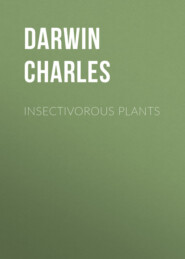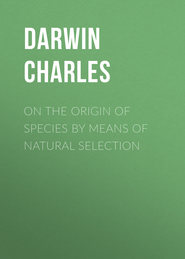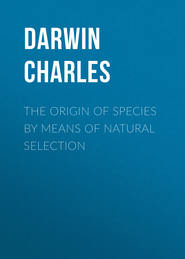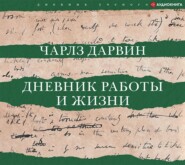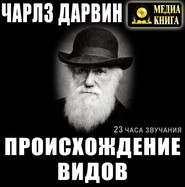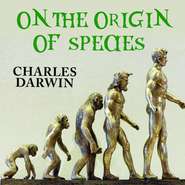По всем вопросам обращайтесь на: info@litportal.ru
(©) 2003-2024.
✖
More Letters of Charles Darwin — Volume 1
Настройки чтения
Размер шрифта
Высота строк
Поля
Now I have done the three other volumes. You will see that all species in the six volumes together go right, and likewise all orders in the three last volumes, except Verbenaceae. Is not Verbenaceae very closely allied to Labiatae? If so, one would think that it was not mere chance, this coincidence. The species in Labiatae and Verbenaceae together are between 1/5 and 1/6 of all the species (15,645), which I have now tabulated.
Now, bearing in mind the many local Floras which I have tabulated (belting the whole northern hemisphere), and considering that they (and authors of D.C. Prodromus) would probably take different degrees of care in recording varieties, and the genera would be divided on different principles by different men, etc., I am much surprised at the uniformity of the result, and I am satisfied that there must be truth in the rule that the small genera vary less than the large. What do you think? Hypothetically I can conjecture how the Labiatae might fail — namely, if some small divisions of the Order were now coming into importance in the world and varying much and making species. This makes me want to know whether you could divide the Labiatae into a few great natural divisions, and then I would tabulate them separately as sub-orders. I see Lindley makes so many divisions that there would not be enough in each for an average. I send the table of the Labiatae for the chance of your being able to do this for me. You might draw oblique lines including and separating both large and small genera. I have also divided all the species into two equal masses, and my rule holds good for all the species in a mass in the six volumes; but it fails in several (four) large Orders — viz. Labiatae, Scrophulariaceae, Acanthaceae, and Proteaceae. But, then, when the species are divided into two almost exactly equal divisions, the divisions with large genera are so very few: for instance, in Solanaceae, Solanum balances all others. In Labiatae seven gigantic genera balance all others (viz. 113), and in Proteaceae five genera balance all others. Now, according to my hypothetical notions, I am far from supposing that all genera go on increasing forever, and therefore I am not surprised at this result, when the division is so made that only a very few genera are on one side. But, according to my notions, the sections or sub-genera of the gigantic genera ought to obey my rule (i.e., supposing a gigantic genus had come to its maximum, whatever increase was still going on ought to be going on in the larger sub-genera). Do you think that the sections of the gigantic genera in D.C. Prodromus are generally NATURAL: i.e. not founded on mere artificial characters? If you think that they are generally made as natural as they can be, then I should like very much to tabulate the sub-genera, considering them for the time as good genera. In this case, and if you do not think me unreasonable to ask it, I should be very glad of the loan of Volumes X., XI., XII., and XIV., which include Acanthaceae, Scrophulariaceae, Labiatae, and Proteaceae, — that is, the orders which, when divided quite equally, do not accord with my rule, and in which a very few genera balance all the others.
I have written you a tremendous long prose.
LETTER 64. TO J.D. HOOKER. Down, June 8th {1858}.
I am confined to the sofa with boils, so you must let me write in pencil. You would laugh if you could know how much your note pleased me. I had the firmest conviction that you would say all my MS. was bosh, and thank God, you are one of the few men who dare speak the truth. Though I should not have much cared about throwing away what you have seen, yet I have been forced to confess to myself that all was much alike, and if you condemned that you would condemn all my life's work, and that I confess made me a little low; but I could have borne it, for I have the conviction that I have honestly done my best. The discussion comes in at the end of the long chapter on variation in a state of nature, so that I have discussed, as far as I am able, what to call varieties. I will try to leave out all allusion to genera coming in and out in this part, till when I discuss the "Principle of Divergence," which, with "Natural Selection," is the keystone of my book; and I have very great confidence it is sound. I would have this discussion copied out, if I could really think it would not bore you to read, — for, believe me, I value to the full every word of criticism from you, and the advantage which I have derived from you cannot be told...
I am glad to hear that poor old Brown is dying so easily...
You will think it paltry, but as I was asked to pay for printing the Diploma {from a Society of which he had been made an honorary member}, I did not like to refuse, so I send 1 pound. But I think it a shabby proceeding. If a gentleman did me some service, though unasked to do it, and then demanded payment, I should pay him, and think him a shabby dog; and on this principle I send my 1 pound.
(65/1. The following four letters refer to an inquiry instituted in 1858 by the Trustees of the British Museum as to the disposal of the Natural History Collections. The inquiry was one of the first steps towards the establishment of the Cromwell Road Museum, which was effected in 1875.)
LETTER 65. TO R.I. MURCHISON. Down, June 19th {1858}.
I have just received your note. Unfortunately I cannot attend at the British Museum on Monday. I do not suppose my opinion on the subject of your note can be of any value, as I have not much considered the subject, or had the advantage of discussing it with other naturalists. But my impression is, that there is much weight in what you say about not breaking up the natural history collection of the British Museum. I think a national collection ought to be in London. I can, however, see that some weighty arguments might be advanced in favour of Kew, owing to the immense value of Sir W. Hooker's collection and library; but these are private property, and I am not aware that there is any certainty of their always remaining at Kew. Had this been the case, I should have thought that the botanical collection might have been removed there without endangering the other branches of the collections. But I think it would be the greatest evil which could possibly happen to natural science in this country if the other collections were ever to be removed from the British Museum and Library.







